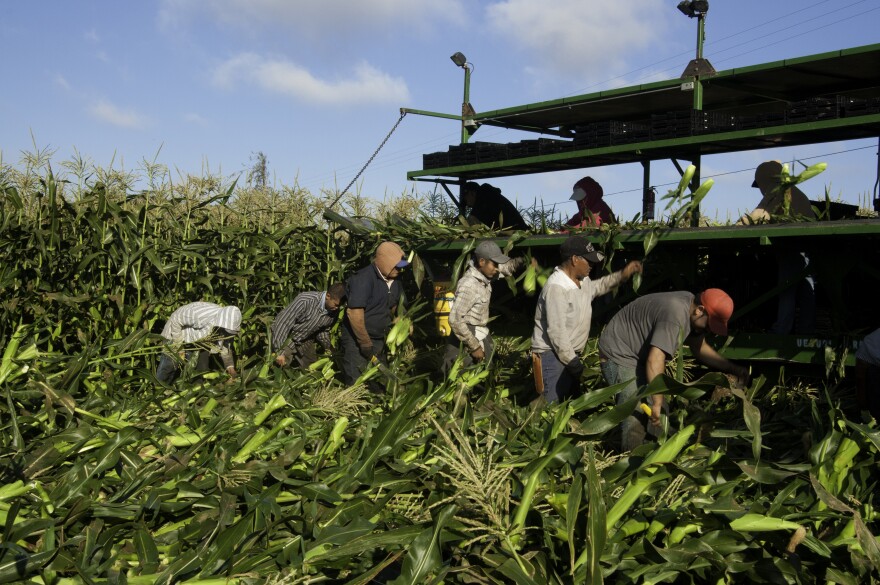The Trump Administration appointed former Georgia governor Sonny Perdue as the next Secretary of Agriculture, but for some in the agriculture business the announcement came too late.
The appointment was announced long after every other cabinet member had already been announced, a perceived slight to a community that had overwhelmingly supported Donald Trump during the election.
"Somebody invites you over, you write them a thank you note. That hasn't happened from their perspective."
"When you have a voter block that unequivocally, so strongly supported you, typically the first thing that a candidate would want to do... [is] make sure that their needs felt they were being met, as a recompense for the enthusiasm," says food contributor, Kyle Cherek. "Somebody invites you over, you write them a thank you note. That hasn't happened from their perspective."
There have been mixed feelings about the selection of Sonny Perdue, a former veterinarian and former governor of Georgia. Perdue grew up on a farm and has some agricultural businesses, which people in the industry appreciate. However, he seems to favor "Big Ag." And, Cherek describes him as "hawkish" on immigration, which could be harmful to businesses in states like Wisconsin.
"If we didn't have Mexican, primarily Hispanic immigrants here, we would have no dairy industry."
"If we didn't have Mexican, primarily Hispanic immigrants here, we would have no dairy industry, so to speak, or folks to work in it," he says. "American agriculture relies on immigration. We'd have no California wine, we'd have no Christmas trees, we'd have no green leaf lettuces of any sort, we'd have no fruit."
The agricultural industry is also concerned with President Trump's talk about potential tariffs on all foreign imports.
"We trade with almost every country in the world through agriculture," says Cherek. "The agriculture, for instance, that comes up through Mexico, the strawberries that you can buy in January, President Trump is talking about a 35% tariff on that."
"If you like giving your kids baby carrots in their lunch, or if you enjoy a tomato on your salad at any time other than when you grew one in your garden, just plan to pay 35% plus probably another markup on this side, for those things."
He continues, "So if you like giving your kids baby carrots in their lunch, or if you enjoy a tomato on your salad at any time other than when you grew one in your garden, just plan to pay 35% plus probably another markup on this side, for those things."
Some are worried the Trump Administration is not properly prioritizing the concerns of the agricultural community and that they don't understand the complex web of issues impacting U.S. farming and food industries. The late announcement of the Secretary of Agriculture, a person in charge of a $130 billion department who controls almost all aspects of food in the U.S., has led some to question whether the Trump Administration fully appreciates the immense impact of the Department of Agriculture.
"The Secretary of Agriculture oversees the farming industry completely, meaning price support, subsidies, food inspection and food safety for the public. 40 million Americans are currently receiving food stamps. That is the Secretary of Agriculture's domain, as well as inspection of facilities, as well as food safety, as well as if there's one little drop of bacteria on grapes and there needs to be a recall."
He continues, "Should any of your listeners not eat one meal a day, then they are exempt from any concerns relative to the Secretary of Agriculture's domain. But should anyone at least eat one meal a day, then they fall under great influence from this person and how they delineate and lead and prioritize this department."








